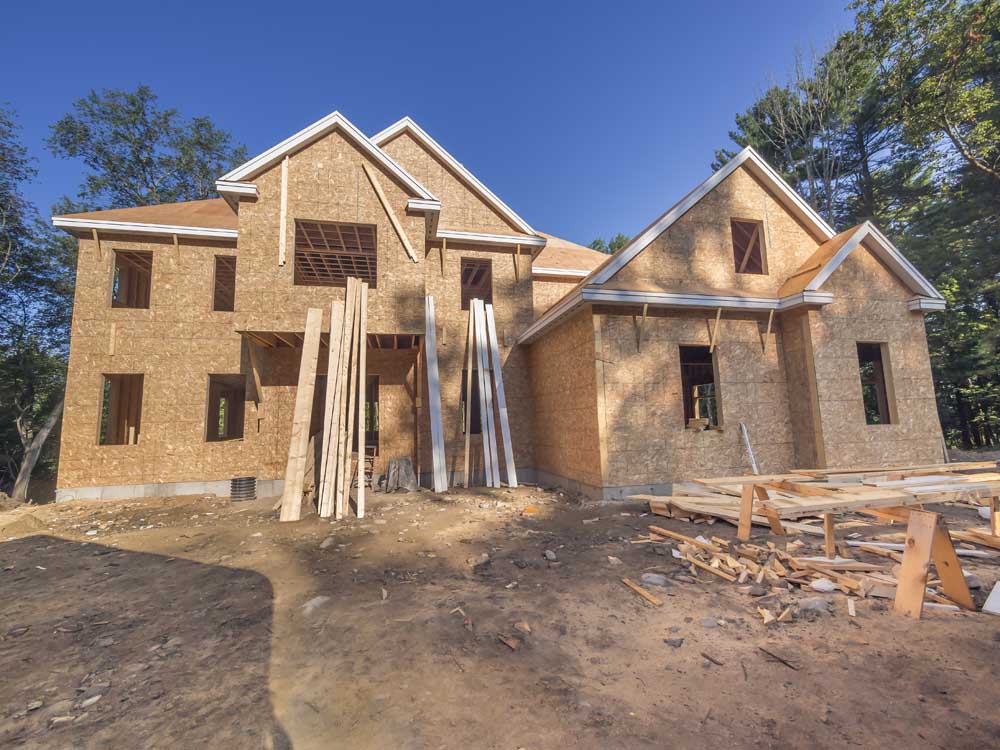Appealing Property Taxes
Published 12:00 am Saturday, October 13, 2018

- OLYMPUS DIGITAL CAMERA
Wait, come back! Don’t run away yet.
Property taxes aren’t appealing, but one particular market segment has the perfect window of time in which to appeal their property taxes if their assessed value or calculations from the county are too high to begin with. That market segment is new construction.
For new construction, your full taxable amount is a moving target until the assessor’s office has fully assessed your property upon completion. New construction properties will not be fully assessed for another 12 to 18 months after the completion notice has been filed. How about a quick little review of Measure 50 and property taxes in Oregon?
New residents and longtime residents alike hear the term “Measure 50,” passed in 1997, tossed around like a ball when it’s tax time. This measure accomplished many things in adjusting some errors related to Measure 47. The objective of M50 was to reduce property taxes in 1997–1998 and to control their future growth. It did this in three ways: by switching to permanent rates, reducing assessed values, and limiting annual growth of assessed value. While these rules may change in the future, right now it provides an opportunity for new construction buyers to ensure their newly fixed permanent tax rate/base will be assessed correctly to begin with. Believe it or not, errors can and do occur on occasion.
I have summarized a couple of items directly from the Oregon Department of Revenue, as follows.
For existing properties, M50 limited the annual growth in assessed value (AV) to three percent. This limitation allowed simpler predictions in the future for assessed values.
For newly constructed homes, assessed value is calculated by multiplying the new property’s real market value (RMV) by the ratio of assessed value to real market value of similar properties. This approach to assigning values to a new property assures that it is taxed consistently with similar existing properties. M50 also stipulates that assessed value may not exceed real market value. As a result, if the RMV of a property falls below its assessed value, the taxable value will be set at the RMV.
I have attended many classes put on by our local assessor, Scot Langton, and learn something new just about every time. One special note he consistently shares with us are factors that come into play for new construction. According to my notes, the best opportunity to ensure a chance of appealing your property taxes and having it work in your favor presents itself when a vacant lot sprouts a new home. Once the land has improvements such as a new house, taxes on your property will go up.
The best way to be ready is to have your real estate broker provide you with a current market value of your newly constructed home as of January, well ahead of the following October when the tax rolls occur.
For example, tax bills come out in mid-October. If your home was completed in July 2018 and you look at the tax bill that you get in the mail in October 2018, your taxes will not be complete. You have to wait until January 2019 (since your home was completed as of July 2018) and, as recommended, have a current market analysis done in January 2019 and hold on to that report until October 2019. At that point, the county will have fully assessed your property and will set the base tax rate as of October 2019.
If your agent isn’t able to help, you can also hire an appraiser to appraise your home. If you call an appraiser, be sure to request a value appraisal or be very clear why you are requesting an appraisal. You will need to pay for an appraiser to do this for you, where your agent usually can do it at no charge.
When you get your property tax bill in the mail from the county, look at the figures the assessor has for your RMV and AV. If you start screaming something along the lines of “Holy taxes, Batman!” because their values are too high based on the value of your property the prior January, I strongly suggest filing an appeal. The reason you need data from January is because that is the month the assessor’s office uses for their valuations each year, so the time frames need to coincide.
If the assessor’s office is too low, then a celebration is in order! While you can file an appeal to say you aren’t paying enough, I’ll leave that up to you. The key is that once the county assessor sets that permanent tax rate for future calculations, it is almost impossible to change. The opportune time is now.
By having the most accurate permanent tax rate affixed to your property from the beginning, you are ensuring yourself and any future owners of the home a true, solid base for taxing industries. As noted above, once that number is set it is very difficult to get the assessor’s office to change it. Also, if you get to tax billing time and do not have (or cannot find) a valuation of your new home from January of that year, your professional can go back and research the data at that point in time.
For my clients of new construction, I make a note in my file for a completed market evaluation come January. I remind clients in September or October to look at their tax bill closely to see if they would be a candidate for a property tax appeal in order to get their permanent tax rate fixed at a realistic number.
The deadline for filing an appeal is December 31. You can get additional information by contacting the assessor’s office by phone, in person, or online. Parking is easy and the staff are very helpful. Good luck and happy fall!








